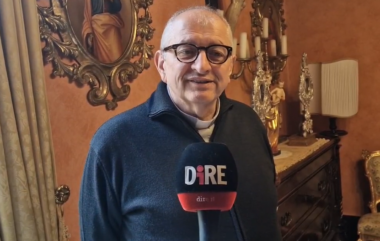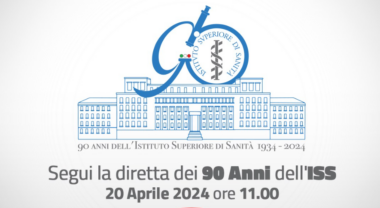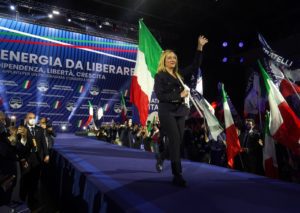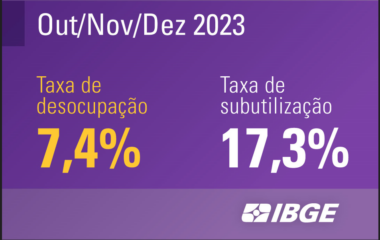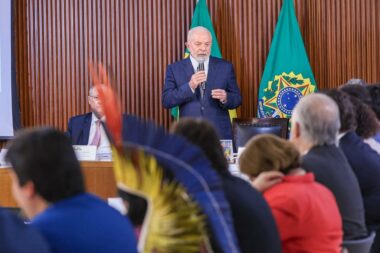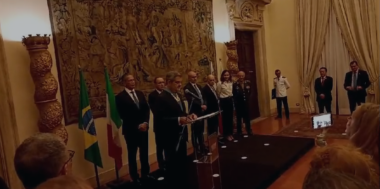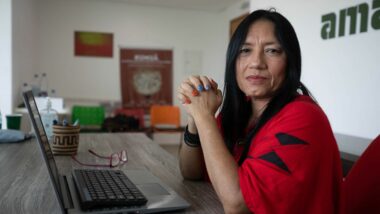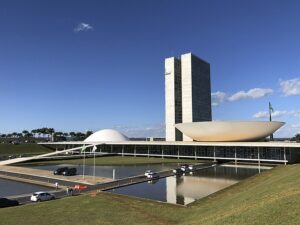Rodrigues (G10 Favelas) : “We will get out of this crisis if we come together”
The G10 Favelas was born from the idea of bringing together the leaders of 10 major favelas in the country and showing the financial potential that there are local opportunities
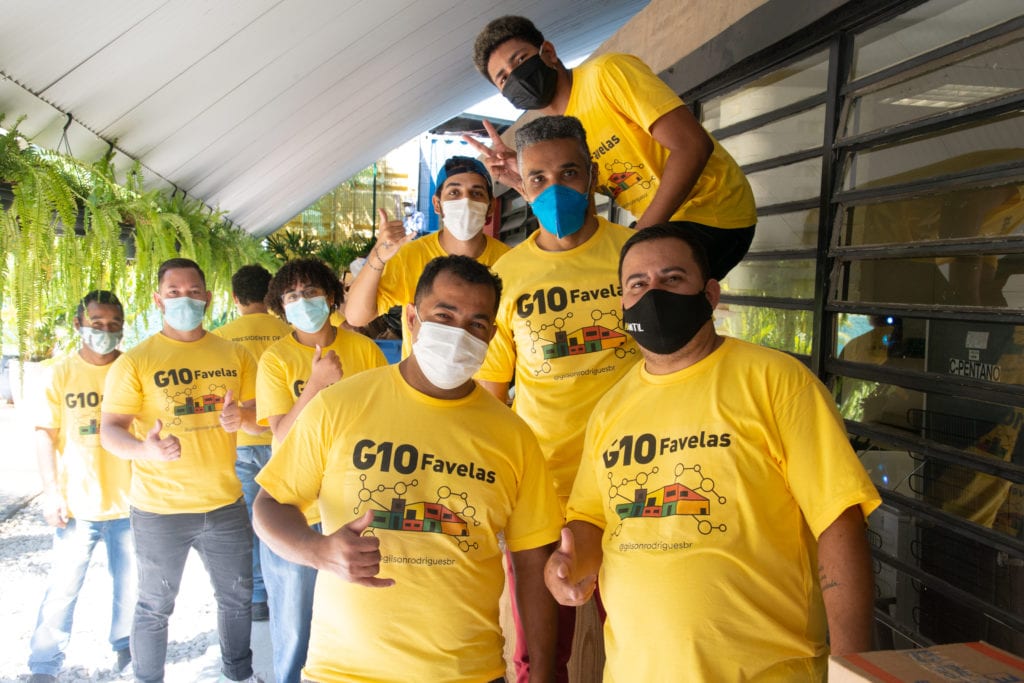
By João Marcelo
The new Coronavirus pandemic opened up many of the problems that Brazil has faced for years, including hunger. Food security in the country has been declining, and it is not only because of the pandemic. In 2018, the FAO (Food and Agriculture Organization of the United Nations) recommended that Brazil encourage food care and implement food access programs to ensure food security for Brazilians. In the current scenario, this concern has become even more evident, especially in the country’s slums and peripheries.
As a result, some initiatives seek to combat these problems, such as the G10 Favelas. The project was born in the Paraisópolis favela, one of the largest favelas in the city of São Paulo. In an interview with Dire agency, the president of G10 Favelas, Gilson Rodrigues, told about the project and what efforts are being made to help these people during the COVID-19 pandemic.
The G10 Favelas was born from the idea of bringing together the leaders of 10 major favelas in the country and showing the financial potential that there are local opportunities. “The G10 favelas is a block of leaders and social entrepreneurs from the 10 largest favelas in the country. Add these 10 slums that together consume in their domestic trade about 7 billion reais. The project was born so that through the union of these favelas these entrepreneurial leaders can act together, inspired by the G7 and G20 of rich countries. In other words, we are positioning ourselves as rich favelas and not as a needy or violent favela, but seeking to create a new look at the approximation of government funds and investments ”said Gilson Rodrigues. For this, an initiative with a structure to meet the demands of its representatives, one of the forms of organization of the movement is through the Street Presidents, who are volunteers responsible for gathering the demands and needs of their neighbors and taking this to the project team.
In addition to the collection of basic food baskets and donations for the residents of Paraisópolis, the G10 needed to take the lead in offering outpatient medical assistance to the community, since the Mobile Emergency Care Service (SAMU), which is part of the public health network, does not serves the region. Gilson assesses that there is a lack of state presence, mainly in the fight against the pandemic, “The performance of the public authorities during the pandemic process is a shame. Concretely, there is a lack of public policies to think about the favela. It is here that water is lacking, it is here that the SAMU service does not come, large families live in small houses. In other words, it is impossible to follow the WHO recommendations, so much so that the data show that the people who are most contaminated and die of COVID-19 in Brazil are slum dwellers ”.
Hunger caused by unemployment has been a problem since the beginning of the pandemic and the situation has only worsened over time. At the beginning of the outbreak, organizers estimate that they were able to distribute around 10,000 lunch boxes a day, but earlier this year that number dropped to an average of 700 lunch boxes a day. The worsening scenario and the decrease in donations made the G10 launch campaigns to try to alleviate this situation. One of these actions was the Panela Vazia movement, which seeks to raise awareness among the population about the reality of hunger that plagues many Brazilians in the pandemic. The movement has already carried out peaceful demonstrations to give visibility to the cause.
Thanks to collective efforts, donations have increased and today more residents of the community are able to be served, but there is still much to be done. Gilson calls for people to look more empathetically at the situation in the favelas. “It is important that in this crisis we do not experience two Brazils, one from the home office and the other from hunger. We will only be able to get out of this crisis if we come together. We don’t want to be part of the problem, we want to be part of the solution, that’s why we are organized here, mobilizing street presidents and doing our part. When before, people only expected us to go to the avenue to burn tires, to look at what we are doing and to help us overcome this crisis, because together we are stronger ”.
BRASILE, CONTRO FAME E CRISI COVID ARRIVA G10 FALES
Il Covid-19 ha fatto venire in superficie molti dei problemi che il Brasile affronta da anni, compresa la fame. La sicurezza alimentare nel Paese e’ in declino, e non solo a causa della pandemia. Gia’ nel 2018 la Fao aveva raccomandato al Brasile a porre maggiore attenzione sul tema e a realizzare programmi per garantire l’accesso ai pasti a tutti i cittadini. Ora la preoccupazione e’ ancora piu’ forte, soprattutto nelle zone degradate e nelle periferie.
È questo il contesto di iniziative come il G10 Favelas. Il progetto e’ nato nella favela di Paraisopolis, una delle piu’ grandi della metropoli di San Paolo. In un’intervista con l’agenzia Dire, il presidente di G10 Favelas, Gilson Rodrigues, ha parlato del progetto e degli sforzi che si stanno facendo per aiutare le persone durante la pandemia Covid-19. Il G10 Favelas nasce dall’idea di riunire i leader delle dieci principali favelas del Brasile mettendo in luce il potenziale anche finanziario locale e mostrando che esistono opportunita’. “Le favelas del G10 – dice Rodrigues – riuniscono un blocco di leader e imprenditori sociali delle 10 favelas piu’ grandi nel Paese; aree che, insieme, consumano valgono flussi commerciali per 7 miliardi di reais brasiliani (oltre un miliardo di euro). Il progetto e’ pensato per mettere in rete queste realta’ sociali con gli imprenditori, in modo che possano agire insieme, ispirati dal G7 e dal G20 dei Paesi ricchi. In altre parole ci stiamo presentando come favelas ricche di opportunita’ e non come territori abitati da bisognosi o violenti; vogliamo creare una nuova immagine che riesca ad attrarre fondi governativi e investimenti”.
Tra le strutture previste dall’iniziativa, c’e’ quella dei “presidenti di strada”: si tratta di volontari che si occupano di raccogliere le richieste e i bisogni dei residenti portandole ai referenti del progetto. Oltre alla distribuzione di panieri alimentari con prodotti di base, e alle donazioni per i residenti di Paraisopolis, il G10 riveste un ruolo di primo piano nell’offrire assistenza medica ambulatoriale alla comunita’ dove il Mobile Emergency Care Service (Samu), parte della rete sanitaria pubblica, non arriva.
Rodrigues sottolinea l’assenza dello Stato, soprattutto nella lotta alla pandemia: “Le prestazioni del settore pubblico nel contrastare la pandemia sono state una vergogna. In concreto, mancano politiche e interventi specifici per le favelas. Qui manca l’acqua, i servizi del Samu non arrivano e le famiglie numerose vivono in case piccole. In queste condizioni e’ impossibile seguire le raccomandazioni dell’Organizzazione mondiale della sanita’ e infatti i dati mostrano che i piu’ alti numeri di contagi e decessi per Covid-19 si registrano nelle baraccopoli”.
La fame causata dalla disoccupazione e’ stata un problema sin dall’inizio della pandemia e la situazione e’ peggiorata nel tempo. Al principio, nel 2020, gli attivisti stimavano di essere stati in grado di distribuire circa 10.000 cestini per il pranzo al giorno. All’inizio di quest’anno, pero’, il numero e’ sceso a una media di 700 pasti al sacco al giorno. E’ stato anche il calo nelle donazioni a suggerire la creazione del G10, proprio per migliorare la situazione.
Un fattore di cambiamento e’ ora il movimento Panela Vazia, che cerca di sensibilizzare la popolazione sulla realta’ della fame che affligge tanti brasiliani. Sono state organizzate manifestazioni pacifiche per dare visibilita’ alla causa. Grazie agli sforzi collettivi, le donazioni sono aumentate e oggi si riesce ad assistere un maggior numero di persone. C’e’ pero’ ancora molto da fare.
Rodrigues esorta le persone a essere piu’ empatiche nei confronti degli abitanti delle favelas: “È importante che in questa fase di crisi il Paese non si spacchi in due popolazioni: quella che lavora da casa e quella che ha fame“. L’esperto conclude: “Saremo in grado di uscire da questa crisi solo se uniamo le forze. Non vogliamo essere parte del problema, bensi’ della soluzione: ecco perche’ abbiamo mobilitato i ‘presidenti di strada’. Le persone che si aspettavano solo che andassimo in strada a bruciare gli pneumatici devono guardare a quello che stiamo facendo e aiutarci per superare la crisi. Insieme siamo piu’ forti”.
GILSON RODRIGUES, PRESIDENTE DO G10 FAVELAS AFIRMA: “SÓ VAMOS CONSEGUIR SAIR DESSA CRISE SE A GENTE SE UNIR”
Por João Marcelo
SAO PAULO – A pandemia do novo Coronavírus escancarou muitos dos problemas que o Brasil enfrenta há anos, entre eles a fome. A segurança alimentar no país vem caindo, e não é só por conta da pandemia. Em 2018, a FAO (Organização das Nações Unidas para Agricultura e Alimentação) recomendou que o Brasil incentivasse o cuidado com a alimentação e que fossem mantidos programas governamentais de acesso a alimentos para garantir a segurança alimentar dos brasileiros. No cenário atual, essa preocupação se tornou ainda mais evidente, principalmente nas favelas e periferias do país.
Com isso, algumas iniciativas buscam combater esses problemas, como o G10 Favelas. O projeto nasceu na favela de Paraisópolis, uma das maiores favelas da cidade de São Paulo. Em entrevista à agência Dire, o presidente do G10 Favelas, Gilson Rodrigues, contou sobre o projeto e quais esforços estão sendo feitos para ajudar essas pessoas durante a pandemia do COVID-19.
O G10 Favelas nasceu da ideia de reunir as lideranças de 10 grandes favelas do país e mostrar o potencial financeiro que existem nesses lugares. “O G10 favelas é um bloco de líderes e empreendedores sociais das 10 maiores favelas do país. Juntar essas 10 favelas que juntas consomem no seu comércio interno cerca de 7 bilhões de reais. O projeto nasceu para que através da união dessas favelas esses líderes empreendedores possam atuar de maneira conjunta, inspirado no G7 e G20 dos países ricos.Ou seja, nós estamos nos posicionando como favelas ricas e não como uma favela carente ou violenta, mas buscando criar um novo olhar para a aproximação de fundos e investimentos do governo” Contou Gilson Rodrigues. Para isso, a iniciativa conta com uma estruturação para atender as demandas de seus representantes, uma das formas de organização do movimento é por meio dos Presidentes de Rua, que são voluntários responsáveis por reunir as demandas e necessidades de seus vizinhos e levar isso para a equipe do projeto.
Além de arrecadação de cestas básicas e doações para os moradores de Paraisópolis, o G10 precisou tomar a dianteira para oferecer assistência médica ambulatória à comunidade já que o Serviço de Atendimento Móvel de Urgência (SAMU), que faz parte da rede pública de saúde, não atende a região. Gilson avalia que falta uma presença do estado, principalmente no combate à pandemia, “A atuação do poder público durante o processo de pandemia é uma vergonha. Concretamente faltam políticas públicas para pensar a favela. É aqui que falta água, é aqui que o serviço do SAMU não vem, famílias numerosas vivem em casas pequenas. Ou seja, é impossível seguir as recomendações da OMS, tanto é que os dados mostram que quem mais se contamina e morre de COVID-19 no Brasil são os moradores de favelas”.
A fome causada pelo desemprego foi um problema desde o início da pandemia e a situação só piorou com o passar do tempo. No início do surto, os organizadores estimam que conseguiam distribuir cerca de 10.000 marmitas por dia, mas no começo deste ano esse número caiu para uma média de 700 marmitas por dia. O agravamento do cenário e a diminuição das doações fizeram com que o G10 lançasse campanhas para tentar amenizar essa situação. Uma dessas ações foi o movimento Panela Vazia, que busca conscientizar a população acerca da realidade de fome que assola muitos brasileiros na pandemia, o movimento já realizou manifestações pacíficas para dar visibilidade à causa.
Graças aos esforços coletivos, as doações aumentaram e hoje mais moradores da comunidade conseguem ser atendidos, mas ainda há muito a ser feito. Gilson faz um apelo para que as pessoas olhem com mais empatia para a situação das favelas. “É importante que nessa crise a gente não viva dois brasis, um Brasil do home office e outro da fome. Só vamos conseguir sair dessa crise se a gente se unir. Nós não queremos fazer parte do problema, nós queremos fazer parte da solução, é por isso que estamos aqui organizados, mobilizando os presidentes de rua e fazendo a nossa parte. Quando antes as pessoas só esperavam que nós fossemos pra avenida queimar pneu, que olhem para o que estamos fazendo e que nos ajudem a superar essa crise, porque unidos nós somos mais fortes”.
Le notizie del sito Dire sono utilizzabili e riproducibili, a condizione di citare espressamente la fonte Agenzia DIRE e l’indirizzo www.dire.it
